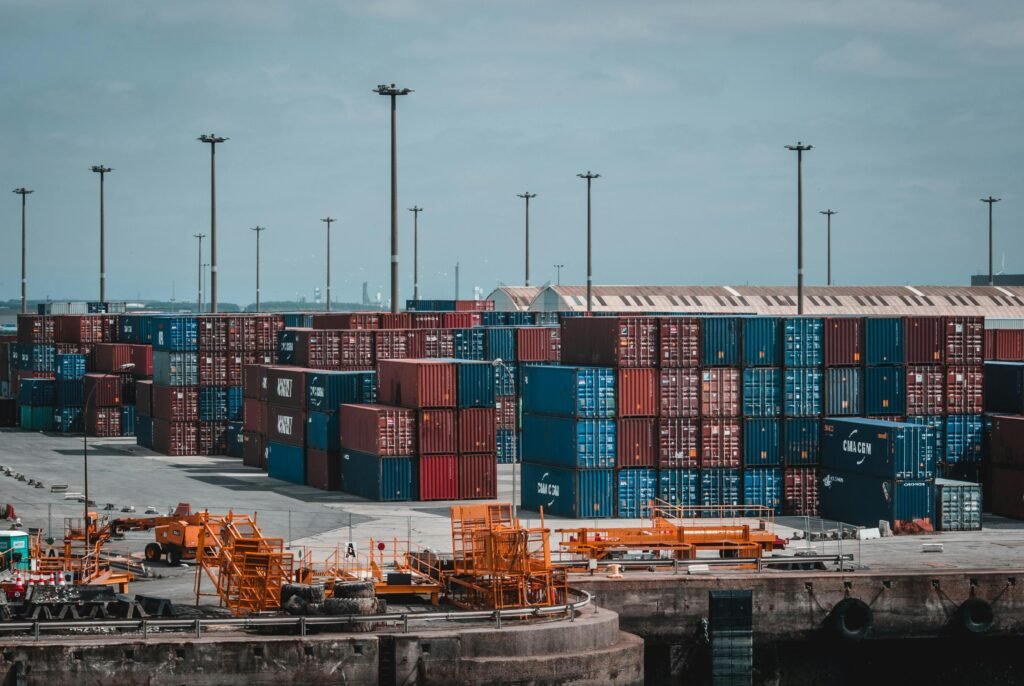Commerce, at its core, refers to the activity of buying and selling goods and services, but in today’s interconnected world, it has evolved into something far more dynamic and multifaceted. The rise of global trade, advancements in technology, and the growing complexity of economies have reshaped how we engage with commerce on a daily basis. From the moment we wake up to the time we go to bed, commerce influences nearly every aspect of our lives.
This article explores the multifaceted role of commerce in today’s life, examining its significance in the economy, its impact on society, and its integration with technology. We will also discuss the challenges and opportunities commerce presents in the modern world, and the ways it is shaping the future.
The Backbone of the Global Economy
Commerce plays a central role in driving the global economy. As nations around the world continue to specialize in various industries, commerce facilitates the exchange of goods and services across borders. This interconnectedness allows countries to focus on their strengths while relying on others for the goods and services they lack. Whether it’s oil, technology, food, or raw materials, commerce enables countries to obtain what they need to grow and thrive.
Globalization, fueled by advancements in transportation and communication, has expanded commerce to unprecedented levels. Today, multinational corporations operate in multiple countries, and local businesses can reach customers halfway around the world via e-commerce platforms. Trade agreements, like those under the World Trade Organization (WTO), encourage the free flow of goods and services, contributing to economic growth and development.
However, it’s important to recognize that commerce doesn’t just benefit large corporations. Small and medium-sized enterprises (SMEs) also play a crucial role in sustaining economies. These businesses not only create jobs but also foster local innovation and contribute to the diversity of products and services available to consumers.
Commerce as a Driver of Employment
In addition to its economic benefits, commerce is a significant source of employment across the globe. The retail industry, which includes both physical stores and e-commerce platforms, is one of the largest employers in many countries. In fact, millions of people work in sectors related to commerce, including sales, marketing, logistics, finance, and customer service.
The rise of digital commerce, often referred to as e-commerce, has created new employment opportunities that did not exist a generation ago. E-commerce platforms like Amazon, eBay, and Alibaba, as well as independent online stores, employ vast numbers of people worldwide. Positions in warehousing, customer support, web development, digital marketing, and supply chain management have become increasingly important as businesses shift to online models.
Even beyond retail, commerce stimulates growth in various sectors. Financial institutions, legal firms, and technology companies are all heavily involved in commercial activity. For instance, commercial banking supports businesses through loans and investment products, while law firms provide legal services to businesses engaged in trade. Technology companies build platforms and tools that help businesses manage their commercial operations efficiently.
Enhancing Consumer Choice and Convenience
Commerce has fundamentally changed the way consumers access goods and services. One of its most powerful impacts is on the sheer variety of products available and the ease with which they can be purchased. With the rise of online shopping and the global marketplace, consumers have access to an almost infinite array of goods and services, often delivered directly to their doorsteps.
E-commerce has brought a level of convenience to shopping that was unimaginable just a few decades ago. Consumers can now purchase everything from electronics and clothes to groceries and pharmaceuticals with a few taps on their smartphones or clicks on their computers. This convenience has reshaped not only consumer behavior but also societal expectations. Consumers now expect fast, reliable, and seamless shopping experiences, both online and offline.
The expansion of commerce has also given rise to niche markets, allowing for the availability of products that may not have had a broad audience in traditional retail settings. Whether it’s organic food, handcrafted goods, or eco-friendly products, consumers can now find exactly what they are looking for, often from small businesses or independent sellers. This greater access to goods has democratized shopping in a way that empowers individuals and supports a diversity of offerings.
The Role of Technology in Modern Commerce
One of the most significant changes in commerce over the past few decades has been the integration of technology. Advancements in information technology, including the rise of the internet, mobile devices, and digital payment systems, have revolutionized the way businesses and consumers interact.
Online marketplaces, digital advertising, and social media platforms have enabled businesses to reach broader audiences, market their products more effectively, and engage with customers in real time. Technologies like artificial intelligence (AI) and big data analytics are helping businesses optimize their operations, predict trends, and deliver personalized experiences to customers.
The role of mobile technology cannot be overstated. Smartphones and mobile apps have made commerce even more accessible and convenient. Consumers can compare prices, read reviews, make payments, and track deliveries, all from the palm of their hand. The development of mobile payment systems like Apple Pay, Google Wallet, and cryptocurrency has added another layer of convenience and security to online and in-person transactions.
Moreover, innovations like blockchain technology promise to further transform commerce by providing secure, transparent, and efficient ways to process transactions and track goods. As e-commerce continues to grow, these technologies will play a pivotal role in shaping the future of global trade and commerce.

Challenges Facing Modern Commerce
While commerce brings undeniable benefits, it also presents several challenges, particularly in the context of the digital age. One of the most significant issues is the digital divide. While technology has made commerce more accessible for many, it has also highlighted disparities in access to the internet and digital tools. People in rural or underserved areas may have limited access to e-commerce platforms, which can restrict their ability to participate in the modern economy.
Moreover, the environmental impact of global commerce is a growing concern. As demand for goods increases, so does the need for transportation, packaging, and waste management. With growing awareness of climate change, there is a push for more sustainable practices in commerce, such as reducing carbon footprints, minimizing packaging waste, and sourcing goods responsibly.
Another challenge is the increasing complexity of global supply chains. The COVID-19 pandemic exposed vulnerabilities in the global supply chain, as disruptions to production and shipping caused delays and shortages. As commerce becomes more globalized, businesses must work harder to ensure resilience in their supply chains and adapt quickly to changing conditions.
Conclusion: The Future of Commerce
Commerce is the lifeblood of modern economies, shaping how goods and services are produced, distributed, and consumed. Its impact extends far beyond the marketplace, influencing employment, technological innovation, and the daily lives of consumers. As we move further into the 21st century, the role of commerce will only continue to evolve, driven by new technologies, shifting consumer demands, and global interconnectedness.
The future of commerce promises to be even more dynamic, with innovations like artificial intelligence, automation, and blockchain opening new avenues for businesses and consumers alike. However, to fully harness the benefits of modern commerce, society must also address the challenges it presents, from digital inequality to sustainability concerns.
Ultimately, commerce is about more than just transactions; it’s about creating value, fostering connections, and empowering individuals and businesses to thrive. As technology continues to shape the commercial landscape, it’s clear that commerce will remain at the heart of our interconnected world, driving progress and shaping the future of global economies.

